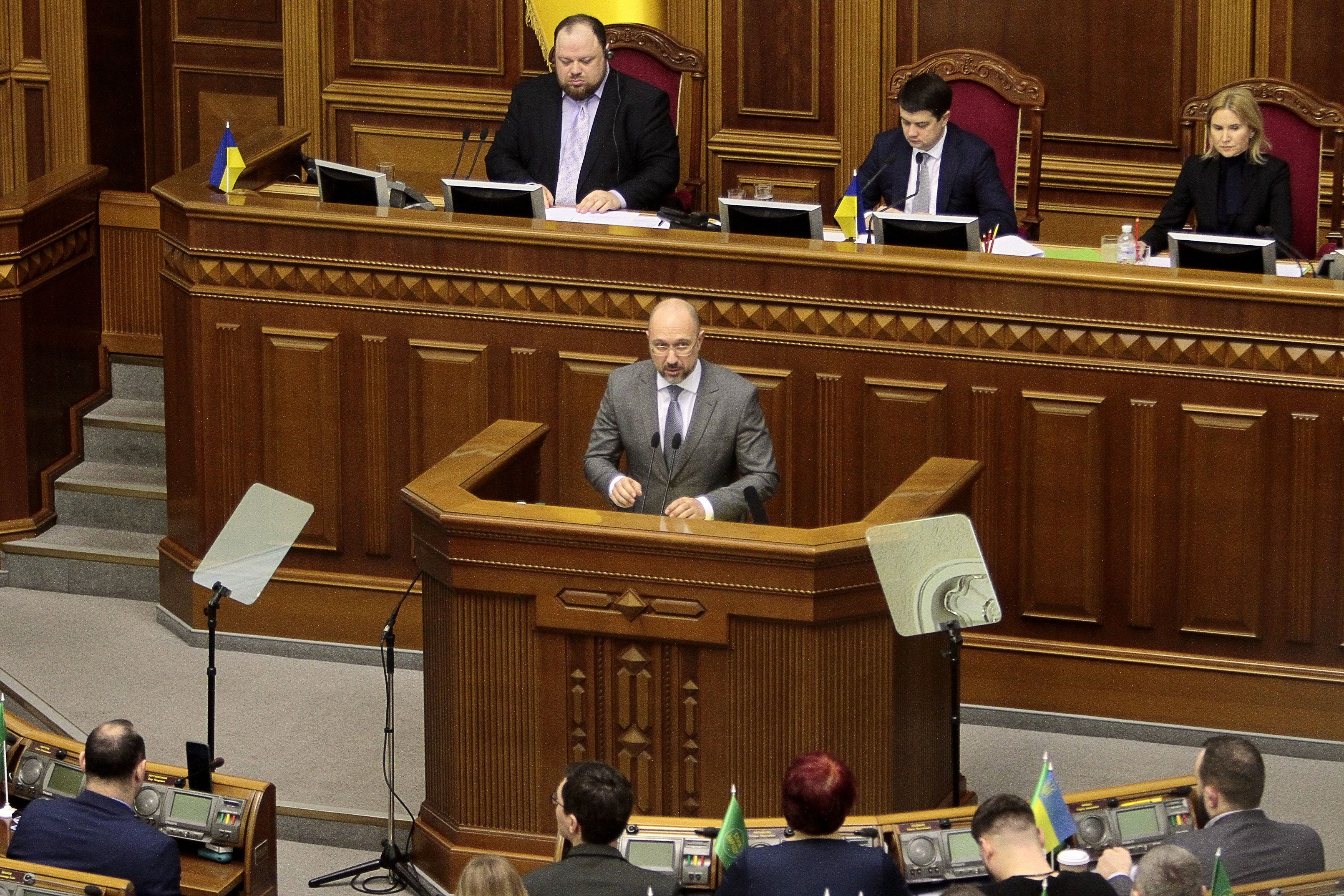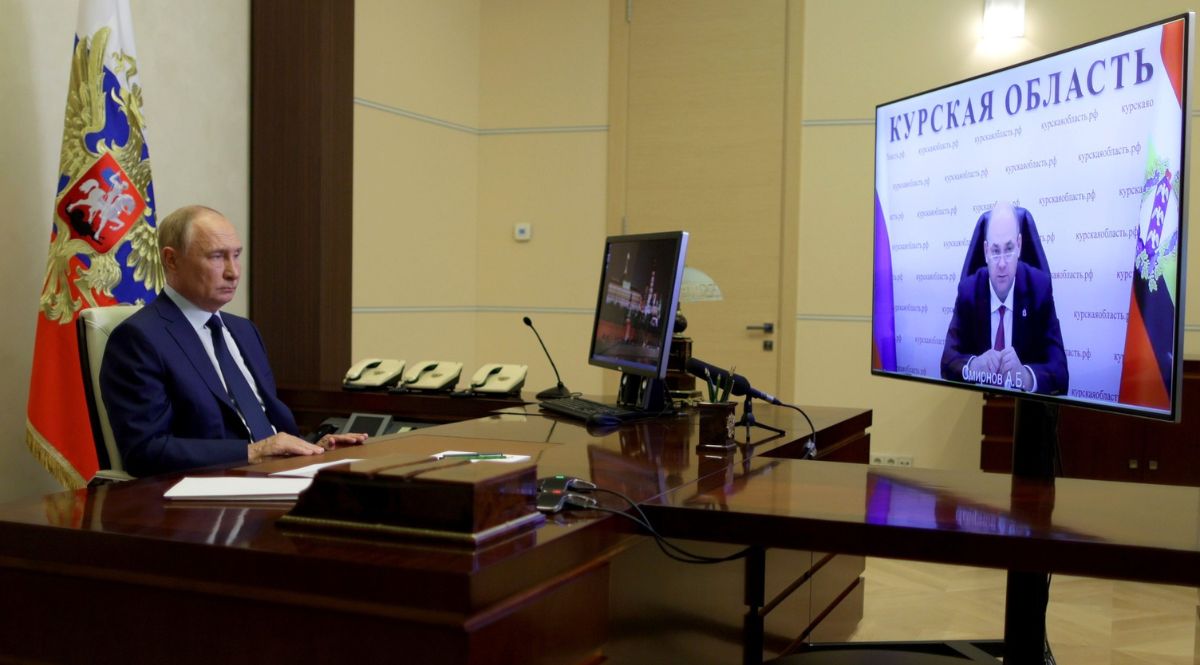Zelensky Rebuilds Ukrainian Government Amid War
At the beginning of September, there were changes in the Ukrainian government, including in the position of the minister of foreign affairs. The changes result from President Volodymyr Zelensky’s desire to consolidate power and, at the same time, the aim of Andriy Yermak, the head of his office, with whom some of the new ministers are closely connected, to strengthen his position. The government’s reconstruction is being carried out as Ukraine is in a difficult military situation with a decline in the Ukrainian public’s confidence in the government. The rebuild is intended to demonstrate the strength and unity of the government to both Ukrainians and the country’s partners.
.png) Pool /Ukrainian Presidentia / Zuma Press / Forum
Pool /Ukrainian Presidentia / Zuma Press / Forum
What changes have taken place in the Ukrainian government?
Since March 2020, Denys Shmyhal has been the prime minister leading the Ukrainian government. In his time there have been more than a dozen changes in his cabinet, mostly due to pressure from the President’s Office (PO). There were various reasons for this, including accusations of corruption, lack of effectiveness, or too much political independence from the PO. Although Ukraine has a parliamentary-presidential system, in practice since the full-scale invasion the president and his office have become the main centre of power. Five ministries had been without leadership at the ministerial level for several months, while six ministers resigned in early September this year. This has meant the need to appoint new leadership for half of the ministries. The majority of the new ministers were people linked to Yermak. The most significant change is in the head of the Ministry of Foreign Affairs, where Yermak’s close associate, Andriy Sybiha, replaced Dmytro Kuleba, who had been seen as ineffective. In addition, Oleksiy Kuleba (no relation to Dmytro), who had previously been deputy head of PO, became deputy prime minister for reconstruction and minister of development of communities, territories and infrastructure. Olha Stefanishina, deputy prime minister for European and Euro-Atlantic integration, who had resigned, was reinstated to this position and additionally became minister of justice. In addition, President Zelensky announced the creation of a new office, tentatively called by the names the “Ministry of Unity” or “Returning Ukrainians Home”, to deal with refugee and migrant policy.
Why the change now?
The reconstruction of the government was announced as early as February by President Zelensky as part of a reorganisation of the state’s leadership and in response to a decline in confidence in the government in the absence of elections. At that time, the only change was in the position of the military’s chief commander—Gen. Oleksandr Syrsky replaced the popular General Valery Zaluzhny, who, according to media assessments, had political ambitions and threatened the position of the president. The timing of the government reconstruction at this point in the year is presented by President Zelensky as an element of the need to prepare for the upcoming very difficult autumn by strengthening state institutions, especially in matters of foreign policy and diplomacy. The consolidation of power is also taking place before Zelensky’s announced visit to the U.S., during which he wants to present the Ukrainian “victory plan” to President Joe Biden and both candidates to replace him, Kamala Harris and Donald Trump.
What is the primary reason for the government reconstruction?
The main reason for the reorganisation is President Zelensky and Andriy Yermak’s desire to further consolidate their power. Most of the ministers were either direct associates of the head of the presidential administration or associated with him. At the same time, those who lost the PO’s confidence or were judged to be ineffective (Dmytro Kuleba) were pushed out. To the public and foreign partners, the reorganisation is being presented as a “new opening”, in part to divert attention away from the impossibility of holding elections and as a response to the steadily declining level of trust in the government over the past several months. In a Razumkov Centre survey in August 2023, 39% of respondents declared trust in the government, and in June this year, only 21.6%.
What does the new composition of the government mean for Ukraine and its foreign policy?
The new government will not affect Ukraine’s domestic or foreign policy. It may, in the short term, improve the exercise of power by the presidential centre, which will, however, in time come under pressure from accusations of excessive seizure of power and manual control of ministries. Foreign policy will be a continuation of the current one, which is largely informally shaped by Yermak anyway. One of the priority tasks of the new foreign minister will be to strengthen efforts to support Ukraine (especially in the context of potential talks with Russia). No major changes in policy towards Poland are to be expected, but the choice of Sybiha, who previously worked at the Ukrainian representation in Poland and is therefore familiar with Polish realities and speaks Polish, may translate into a more balanced rhetoric from the Ukrainian side regarding contentious issues in mutual relations.




.png)
